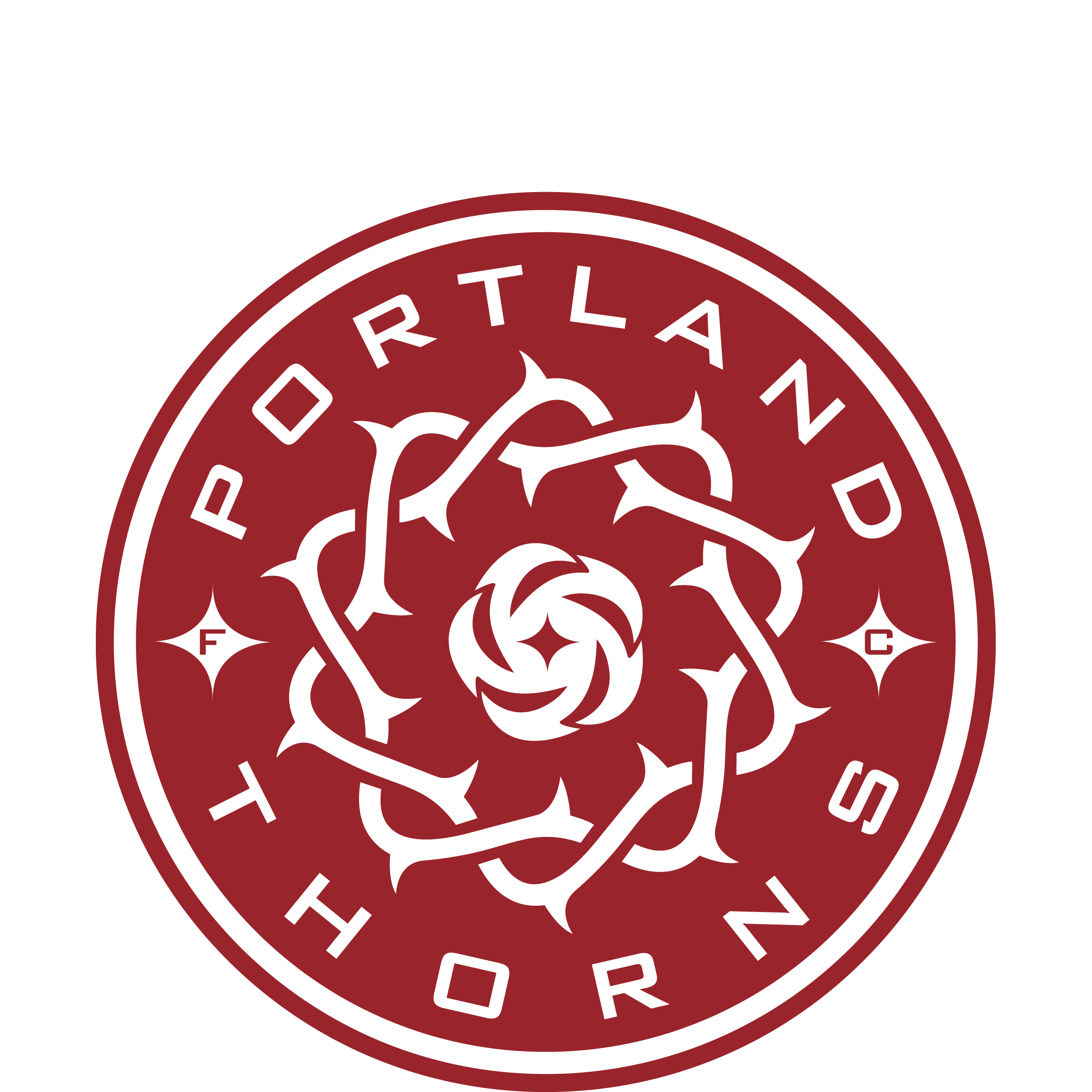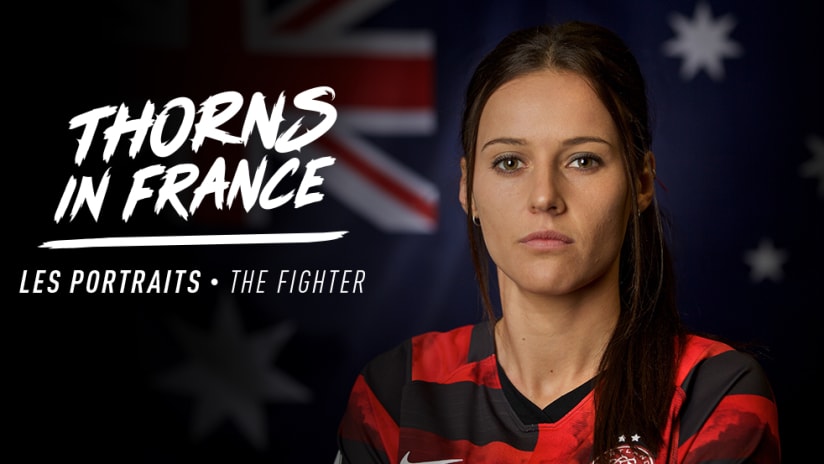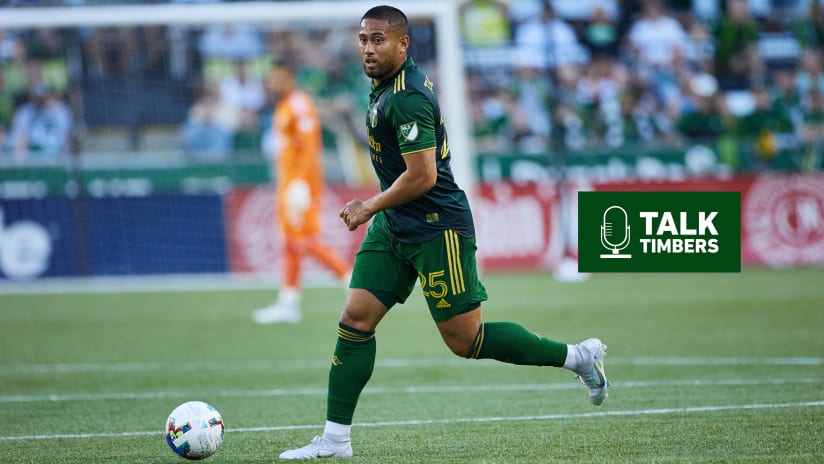PORTLAND, Ore. – Hayley Raso’s told her story a number of times over the last eight months. Sometimes, it’s been in her own words, via Instagram or Twitter. Other times she’s leant her thoughts to others, with her comeback from a serious back injury at the end of last season chronicled invariousplacesaroundthe globe.
She knows, though, there will always be a gap. There will always be how she’s lived the last months of her life and there’s how anyone else can perceive it. She knows it’s impossible to join those worlds.
“As much as you can explain it or other people can explain it,” she says, “nobody really knows. I was the one that lived it.”
This is one of the few times she’s been back in Portland since it happened. After breaking parts of three vertebra in her back last August, Raso spent a prolonged time recovering in a Washington, D.C.-area hospital. After that, it was back to Portland, briefly, then down to Australia, where her recovery would continue at home.
In March, she was back in Portland, but only for a small window before going back to Oz. When Raso made her season debut on May 11 in Orlando, Florida, Raso was again away from Portland.
Today, she’s smiling. But in front of a camera, beneath a film crew’s lights in the bowels of Providence Park, she’s again being asked about the obstacles, ones that go well beyond August’s misfortune. Her entire World-Cup cycle has been about setback and surge – a challenge for every point of progress.
She’s asked what, about her last four years, she thinks is most important. What is the most defining quality of her cycle’s arc?
“I just want [people] to know that I've made it,” she says, something that’s bound to happen at some point next month.
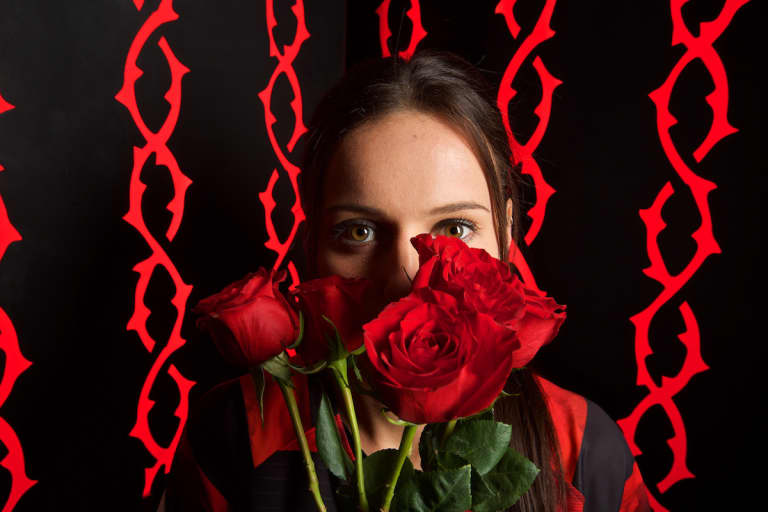
Image: Craig Mitchelldyer / Thorns FC
Raso has always been a player whose effort has defined her. From an opponent’s point of view, the word effort may even be euphemistic. She’s tenacious – a pain in the behind – something that not only helps her transcend her 5-foot-4 profile but also draws the ire of opposing players and coaches. No one would deny, Raso’s a fighter. For some, the fights may happen too often.
A quick look through her career, though, shows why Raso’s approach can’t waver. In the summer of 2015, four years after her professional debut, the then-20-year-old was on a familiar prospect’s course. Although she didn’t see any playing time at that summer’s World Cup, she’d made the team, with only two teammates younger than her named to Alen Stajcic’s squad. She already had 13 caps, earned a place in the United States with the Washington Spirit, and seemed ready to take her place among a constellation of ascending Australian stars.
Soon after, though, the cycle’s fights began. The Spirit changed coaches, with the person who’d brought her to the league, Mark Parsons – then Washington's head coach – replaced by someone who forged his own team. Raso never got a chance to play a competitive game for Parson's successor, Jim Gabarra. In April 2016, she was waived from the squad.
“It was hard. It was really hard …,” she says now, still confused by the decision. When asked if, now, with hindsight, she has a perspective on the decision, she only shrugs. “Obviously, I wasn't what they wanted.”
Having played her first professional game for Canberra United as a 16-year-old, Raso had yet to deal with a significant setback. Even failing to make an appearance at the World Cup wasn’t a problem. It was part of the process. She still had the best part of her career to come. But with her released by Washington came an unfamiliar thought. Early in her career, Raso had to consider her course.
“At the time I thought, ‘Well, I’m just going to go home. What am I going to do?’ You don't really know.”
“You’re in a place, and you think you’re comfortable in that place and that's where you want to be. So then to hear you're not going to continue on in your club team … I wondered what would I do, or where would I go? Where would I play or would I keep playing? If I don't have a team, what do I do?”
The challenges went beyond her life in the club world. “At the time, I was dropped from my national team, as well,” she says, having left the Matildas’ focus ahead of an impending major tournament. Compounding the feeling from missing the 2016 Summer Olympics in Rio de Janeiro, Raso was also in search of a new club home, something that required her to regroup after a quick rise to national team prominence.
“It was kind of like, ‘I want to get back in my national team,’” she told herself, then. “’I want to play in the NWSL.’”
Thus began the pattern, one defined by growth, setback, doubt and response. She’d grown to national team and NWSL spots only to have each taken from her. It forced her to consider what she wanted from her career, and where those results would be possible.
That’s when Parsons, the person who’d originally brought her to Washington, reemerged.
“The timeframe, I can't even remember now,” she says, about how she reunited with her first Spirit coach in Portland. “It was all a pretty short timeframe, though.” It was only a matter of days after Raso was waived before Parsons got in touch.
“For me, it was like I just got a lifeline,” she remembers. “I was in this place of doubt and wondering, where is my soccer career going to go now? Mark gave me that second chance, so I just grabbed it with both hands.”
Her first season in Portland ended with her competing for a starting spot, with the inertia from that surge helping her reclaim a place in the national team before the next NWSL season. Once the 2017 campaign arrived, though, Raso truly took off. The seven goals she buried that year where the first seven of her NWSL career, helping her team claim a league title and her claim the team’s supporters’ Player of the Year honor.
“Once I got the momentum, I just took it and kept going,” she remembers. “It was an exciting year. Getting that Player of the Year award from the (Rose City) Riveters was special to me. It shows that you’re being recognized.”
That recognition went beyond the United States. For her country, Raso was becoming increasingly important, so much so that, by the time Asian Cup came along in April 2018, Raso was getting regular minutes. The two goals she scored in three games during her team’s time in Jordan represented a new level of relevance, though just as with the other surges in her career, those heights led to a new obstacles.
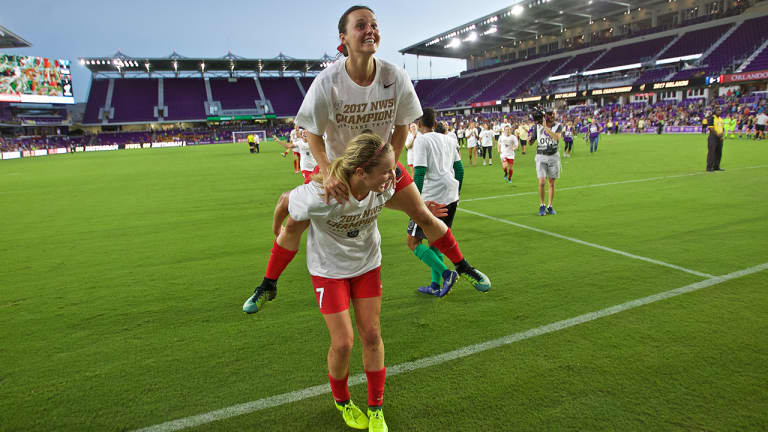
Image: Craig Mitchelldyer / Thorns FC
She’d dealt with left-knee problems through the end of the 2017-18 W-League season. From a distance, it seemed she was going too hard. Fighting on two fronts, for her club and national team livelihoods, Raso was having to go all-out for too long. By the time the end of her season with Brisbane Roar arrived, Raso had been playing in overdrive for over two years.
Then came the Asian Cup, and an injury to her other knee, one that forced her to stop. Were it a complete tear, Raso’s lateral collateral ligament would have sidelined her for the better part of 2018. Instead, the partial tear only sidelined for a couple of months. It also gave her a rest. Taking a deserved break after her two-year sprint, Raso could look at her injury as an unfortunate reprieve, on that gave her a chance to recharge.
“I feel like I've had my fair share (of injuries),” Raso can joke, now. Her knee injury, in hindsight, just “seems like a scratch.
“I hope I’ve had my fair share [or injuries, and] I can be done for a while.”
She missed the first 11 games of the 2018 season, with a building-back period after her return temporarily keeping her out of the starting lineup. The numbers reflected it, with her goal total going from seven to two between seasons. Still, come the end of the campaign, Raso was back to her normal self: starting on the right flank; relentlessly harassing the opposition; leaving opponents wondering when and if her fight would stop.
Then came the big injury, one that’s come to embody all the hardship she’s suffered this cycle. Camped under a lofted ball inside the edge of the Spirit penalty box, Raso was hit in the lower back by the knees of Aubrey Bledsoe, the Washington goalkeeper leaping to claim the falling ball. From the moment Raso fell, the collision looked worse than normal, with Thorns attacker lying motionless, first-face in the turf. When a stretcher was called to the pitch, and Raso eventually taken to a local hospital, fans began to fear the worst.
The worst, thankfully, was never realized. The diagnosis was shocking, though, as much for the intricate, foreign terminology as the path it cast Raso down.
“I’d just come back from my knee,” she says, blankly and curtly, as if still overcome by fatalism. “Finally got back. I don't even think I played that many games. And then my back.”
It’s not often you hear terms like “a non-displaced fracture of the transverse processes of L2, L3 and L4.” They’re the small arms that extend out from each of the spine’s vertebra, meaning on a small scale, Raso had literally suffered a broken back. And while the initial timeline of six-to-eight weeks described the physical trauma, it came nowhere close to capturing the mental.
Even when you blow out your knee, you don’t spend a week in the hospital. Your leg is immobilized, in a brace, but it’s not like having an apparatus around your entire torso. Six to eight weeks might be the time it takes for your vertebra to heal, but it doesn’t capture the full time it takes to recover: to feel like your core, in a literal sense, is back to normal.
“It was really hard for me obviously not really being able to walk,” she remembers, “but then the mental side of it of thinking I actually don't think I'll be able to get back up. So, to be here, sitting here playing again, it's exciting for me to look at the place I was in and then to be here now.”
On January 18, Raso returned to the field for Brisbane. On January 24, she scored. The first time she was called back into the national team, she found net, too, registering a goal in Australia’s February 28 Tournament of Nations opener. Three more national team caps followed, and on May 11 in Orlando, Raso finally made her return to the Portland Thorns.
“The whole time I was in hospital or rehabbing,” she said, “I was thinking, ‘I want to be back with my national team, I want to go to this World Cup. That's why I'm coming back.’”
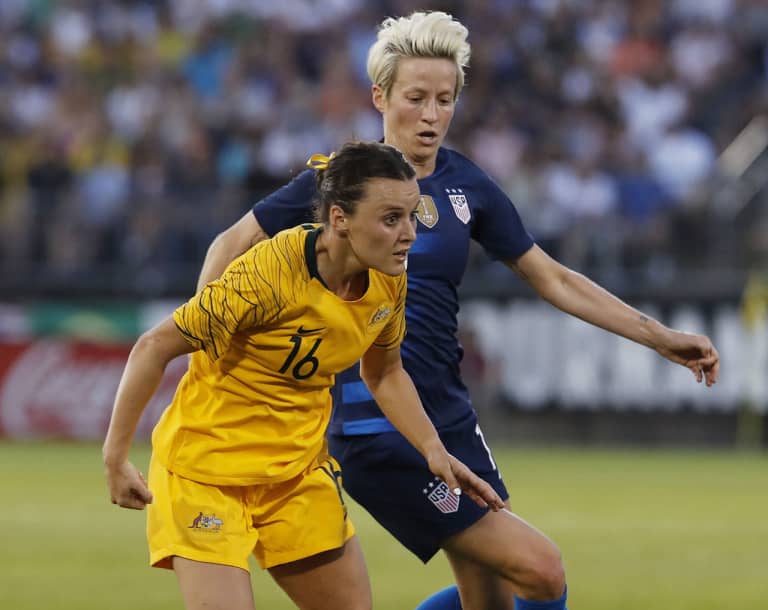
Image: USA Today Sports Images
The pictures of her in a hospital bed make the back injury more memorable. Images of her using a walker, or having to return to basics with her physical therapy, tell people this was the biggest setback she’s ever encountered. It isn’t the only obstacle Raso’s faced since Canada, though, with the setbacks she suffered after her first major tournament steeling her for more challenges.
She was cast off by club and country, yet she fought back, claiming more prominence then she had before. The next setback? A knee injury is serious, but she didn’t require a change of course. The back injury, though? That was physical and mental combined. Everything she’d been through since 2015 has been amplified over the last eight months.
Now, those setbacks have shaped what she’s become. She is a soccer player still, and in part of her identity, there are surely lines that say Australian international, or Portland Thorn. But although it may be cliché, and so many athletes describe themselves as such, Raso has proven to be something more. She is, in the most basic sense, a fighter, having fought to not only reestablish her career but prevent fate from taking it from her once more.
“It’s been a real challenging journey for me,” she concedes, before answering the question, telling us in full about her story’s most important part.
“I just want them to know that I've made it,” she says, “and I've reached my dream. To play it the World Cup. To play minutes. To overcome everything.”
If World Cup minutes are all that’s left, then, as we look at Raso’s past, we can say: She’s already overcame the hardest parts.
